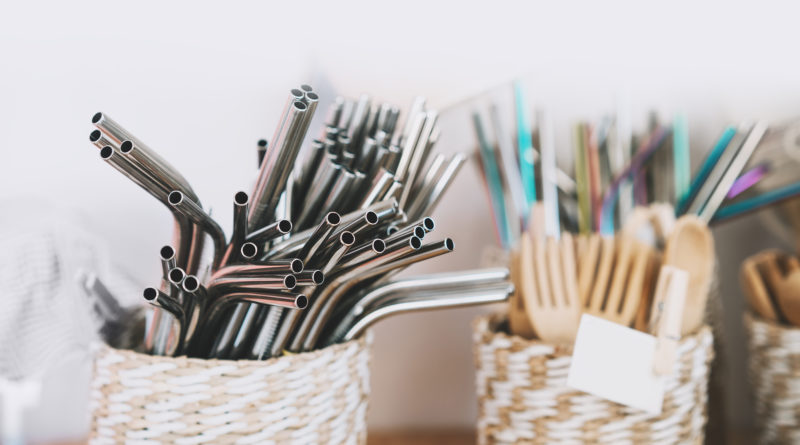Seven Plastic Alternatives You Need To Know About
721 total views, 2 views today
Perhaps you’re interested in making an environmentally conscious move away from plastic to reduce your carbon footprint. The thing is, most people use plastic for food storage, grocery shopping, and so much more. In reality, though, plastic alternatives can be a better and safer way to handle and package your food.
Edible utensils made from rice and wheat flour are a great example, as are starch-based dissolving grocery bags. Beyond food, cassava leaf extract rainwear, bamboo toothbrushes, beeswax cellophane storage wrappers, and seaweed-based mock-plastics are scientifically exciting new alternatives to dangerous single-use plastics. With concerns surrounding the use of plastics reaching new heights, here are seven plastic alternatives you need to know about.
1. Stainless steel and glass alternatives
Reusable metal straws are a new addition to the traditional stainless steel set of utensils, and they aptly replace single-use plastic straws. Dishwasher-friendly glass straws are also a sleek, stylish addition to your dinner party repertoire. Glass and stainless steel containers with stretchy silicone lids are much safer than outdated plastic storage containers that may leave microplastic particles in our ecosystems.
2. Silicone food storage
Washable silicone-based resealable food bags are a sturdy and much-needed alternative to single-use plastic bags and containers. Silicone, which is much safer than plastic, is made from superheated silica mixed with hydrocarbons. Unfortunately, these hydrocarbons are derived from fossil fuels, but the carbon footprint of silicone is orders of magnitude lower than plastic.
Yes, although silicone products have been reducing the use of other kinds of plastics, these food storage items are still plastic. As with other plastic containers, food stored in silicone bags can still leach harmful chemicals into your endocrine system. That said, silicone lasts for life and is roughly the opposite of single-use, so its effect on the global environment is far smaller.
3. Bioplastics
Utensils made from millet or sorghum and wheat flour have a shelf life of almost three years. After that time, they naturally decompose in just days, and while you use them, they’re even flavored! Despite bioplastic utensils’ zero-waste usage, they must be shipped using Styrofoam separators and other plastics because of their fragility.
4. Cassava-based “plastic”
Cassava-based plastic substitutes use protein from cassava, an inexpensive food crop and vegetable oil, to create an organic, plastic-like film that biodegrades naturally over a few months. These cassava-based plastics can also be melted completely and quickly with hot water. While most faux plastics are made from waste products, cassava plastic products use starch, which is the edible (i.e., not waste) portion of the plant.
5. Bamboo
Bamboo toothbrushes are compostable and don’t use plastics derived from nonrenewable resources, plus they’re often oddly stylish for a literal hygiene product. Bamboo is also sustainable to grow and doesn’t need pesticides, fertilizers, or herbicides to survive. Plus, in addition to being compostable, all bamboo products can be recycled.
6. Beeswax
Beeswax food wrap sheets are made from organic cotton infused with beeswax, jojoba oil, and tree resin. All these additives have antibacterial properties. They can smoothly adhere to containers, and you can clean and replenish them by rinsing them with cold water and mild soap.
7. Imitation leather in fashion
As newer plastic alternatives go, one Italian company has made imitation leather from pressed grape waste left behind from wine-making. The brand has released dresses, shoes, and bags made from grape waste. The company is currently working to mass-produce clothes made entirely from grapes. Talk about eco-friendly!
Have you tried any of these plastic alternatives? What was your experience? Share your thoughts in the comments!

